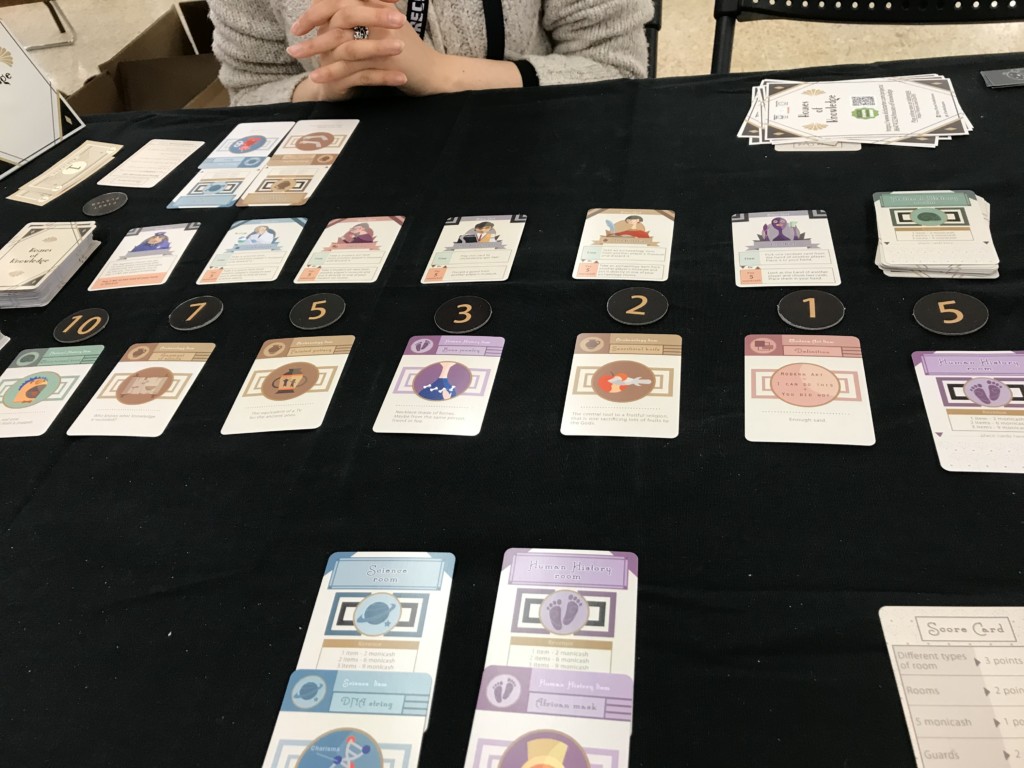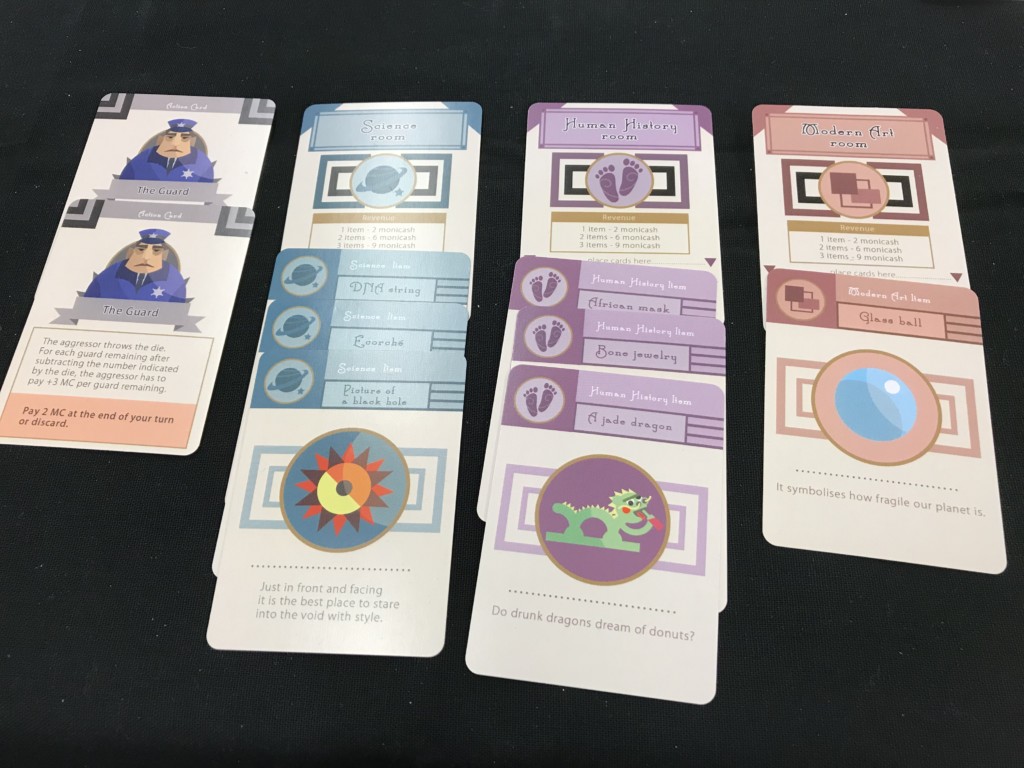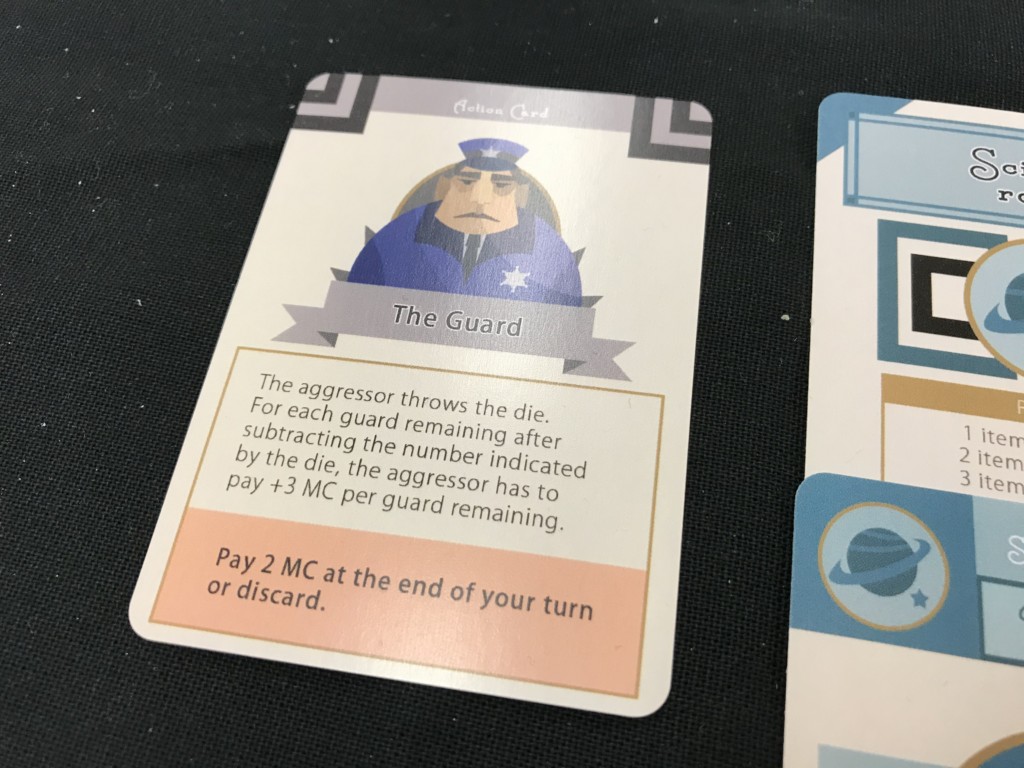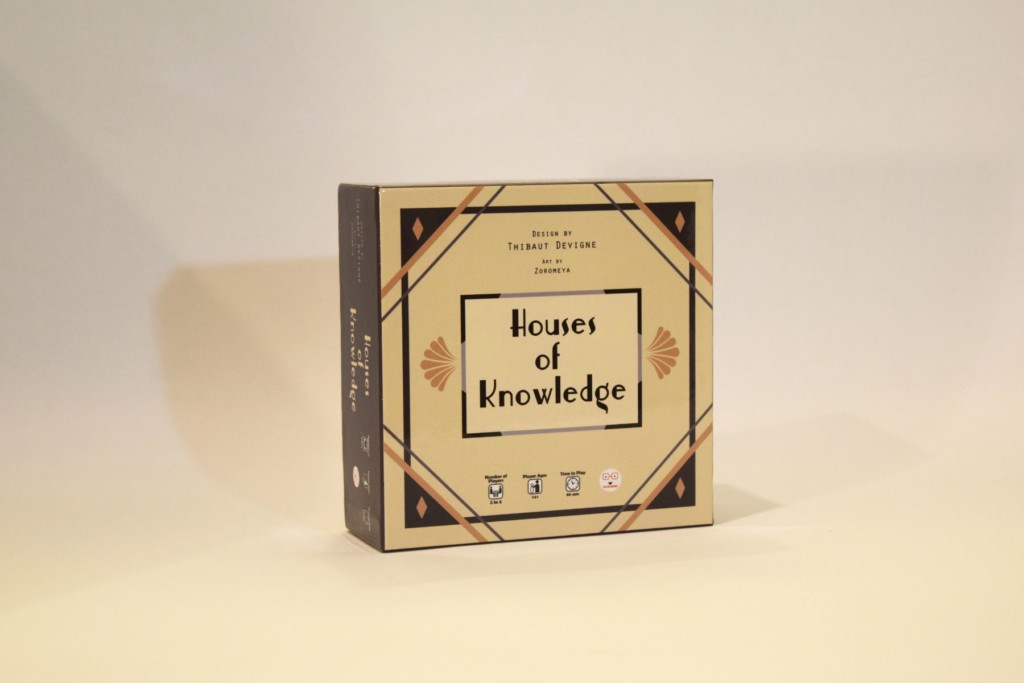Houses Of Knowledge sees you curate a museum collection.
Then defend it till the end!
Players take the roles of curators trying to build the most diverse and impressive museum possible. But beware, as museum curation is a cut-throat world, and your competitors will not hesitate to steal items from your museum to place it in theirs, disrupt the market to get better prices, or use talented PRs to raise their revenue.
Houses of Knowledge Game Play
The table is laid out with 6 tokens numbered 10 to 1 between two rows of cards. The cards below the numbers are items you add to your Museum. Above are staff that can do various actions.
At the end of the row are two stacks of room cards with a ‘5’ token in between. If you haven’t figured it out yet, this number represents the cost of the card.
You get some starting bits and you’re off.

On your turn you can do a few things, mostly involving spending your ‘Monicash’ (MC for short)’.
- Buy a new room for 5 MC
- Play a room into your play area for 2 MC
- Buy a Museum Item for its cost
- Play an Item into a matching colour Room for 2 MC
- Buy a staff member for its cost
- Play the staff member for its effect
Each staff member has two abilities. One weak ability that is free or one advanced, and a meaner ability that costs 5 MC. These let you draw new cards, cause opponents to discard cards or steal cards from an opponent’s hands and/or Museum.
Players can play Security Guards to protect their assets, but these do require 2 MC upkeep each at the end of the round.
At the start of the round, you gain MC income for the number of items you have. Each room can hold 3 and the more you have, the more each room will be worth.

When a player has 8 Items you play another round, if they STILL have 8 then the game ends.
Players score:
- 3 points per different type (colour) of room
- 2 points per room
- 1 point per 5 MC
- 2 points per Security Guard
- 3 points per Item
The player with the most points is the winner.
Theme
At first, I thought this was just an excuse for a set collection game with take-that… But then I remembered my intro from my How to Play Archaeology: The New Expedition where I talked about the cutthroat world of Museums and collectors.
Also, you need to buy more space to hold more Items. So yes, the theme does work for me.
I was just colour-matching items to Rooms rather than looking at their type.
Setup
Shuffle cards and lay them out. There is some faffing with starting hands and cards in your play area etc but nothing complex.
Components & Artwork
The cards are OK. I don’t remember the quality though! But paper money…
The artwork is fun and the colours really help play the game.

Ease of Teaching & Accessibility
There are very few rules so it’s quite easy to teach.
It is also accessible… If you’re playing with young kids you could get them to do some basic maths when working out their income, although it does say it’s 14+ on BGG so maybe not?
Houses of Knowledge Summary
So this is a pretty good set collection game with a lot of take-that. The danger is in players buying and using those staff cards that mess up your game, or give themselves a little bonus.
I went for just buying rooms, placing Items and guarding it all with 2 Guards… I came last.
You have to try and do a bit of everything including bringing opponents down so they don’t get too much income.
I would like to play this again with 4 players who play really aggressively.
Jesta ThaRogue



Leave a Reply